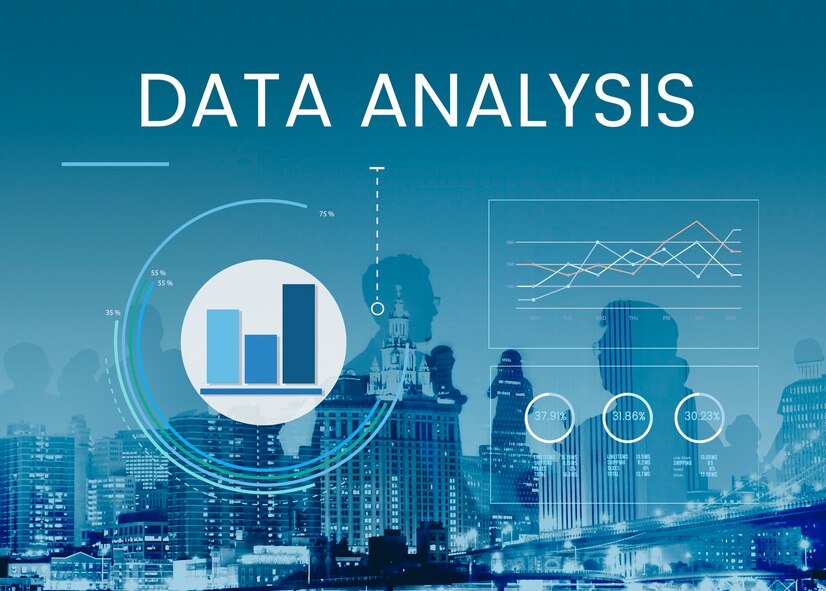The Role of the Data Analyst and Its Responsibilities

As technology advances, the role of data analysts is becoming increasingly important. Businesses rely on data analysts to help them make better decisions by turning complex data into understandable insights. Data analysts are responsible for collecting, organizing, and analyzing data in order to help their company achieve its goals. In this blog post, we will discuss the roles and responsibilities of data analysts and how they can help your business grow!
Table of Contents
What is a data analyst and its responsibilities?
A data analyst is responsible for collecting, organizing, and storing data.
The job also involves analyzing the data and presenting it in a way that is useful to clients and organization leaders. This may include creating visual representations of the information, writing detailed reports, or both.
A small business usually hires one full-time worker to perform these duties while larger companies have several employees who work as analysts together on projects.
Data analysts most often work behind the scenes without much recognition from customers; however, they play a vital role in helping businesses succeed through making decisions based on facts rather than hunches or guesswork.
Data analyst roles and responsibilities usually include examining data using computer software, evaluating results for accuracy, drawing conclusions about the information gathered, and presenting research findings to clients or executives.
A data analyst might be tasked with finding new ways to increase sales by looking at customer buying habits; she could also find a way to save money on energy bills by analyzing business electricity usage patterns over time.
Regardless of what is being examined and why it’s important that analysts use technology tools such as Excel spreadsheets, word processing programs, and database management systems to analyze collected pieces of information in order to determine trends or relationships between different types of data samples. Analysts may also develop their own unique computer programs if feel these are necessary for carrying out their research projects successfully.
How to become a data analyst
The data analyst role is one of the most sought-after positions in the job market. The demand for qualified and skilled data analysts has increased by over 1000% since 2012, according to a study conducted by IBM’s Institute for Business Value.
To become a data analyst, you will need to have an analytical mind and be able to process large amounts of information succinctly. You must also be able to extract useful insights from this information that can help organizations make better decisions. Data analysis skills are incredibly valuable because they provide businesses with actionable insights into operational processes and performance metrics that might otherwise go unnoticed or unappreciated. A good data analyst should know how to analyze large datasets using statistical methods such as regression modeling or clustering techniques.
The data analyst job description includes gathering and analyzing large amounts of information from multiple sources including but not limited to Excel spreadsheets, databases like SQL Server, Oracle DBMS (Database Management Systems), MySQL database software programs, etcetera. The role also entails identifying trends within data sets using statistical methods such as linear regression modeling or clustering techniques; these activities may require knowledge about machine learning algorithms as well as programming languages like Python for example. A good data analyst will be able to use tools such as Tableau Software which provides visualizations that make it easy for users without any coding experience whatsoever just by dragging-and-dropping fields onto graphs/charts in order to visualize relationships between variables found within datasets!
The skills required for a data analyst
They should be able to understand data, analyze it and present it in a way that is easy for everyone to understand. This includes being able to use the correct software and tools to get the job done.
The role of a data analyst is very important in any company. They are responsible for taking all of the data that is collected and analyzing it so that action can be taken if needed. The roles and responsibilities of a data analyst may vary depending on the company, but there are some core skills that are essential for this position.
The first skill is understanding data. A data analyst needs to be able to take all of the information that they have been given and make sense of it. This means being able to understand the data, figure out what it means and put it into context. They also need to be able to find trends and patterns so that they can make informed decisions.
The second skill is analyzing data. Once data analyst understands the data, they need to be able to analyze it and come up with conclusions. This includes being able to identify any problems or issues that may be present. They also need to be able to recommend solutions based on the data that has been collected.
The third skill is presenting data effectively. A data analyst needs to be able to present their findings in a way that is easy for everyone to understand. This includes being able to use the correct software and tools as well as formatting the information correctly.
The role of a data analyst is very important in any company. They are responsible for taking all of the data that is collected and analyzing it so that action can be taken if needed. The roles and responsibilities of a data analyst may vary depending on the company, but there are some core skills that are essential for this position.
Salary of a data analyst
A data analyst can earn an average salary of $65,000 each year. This depends on the skills and experience he or she has to offer. The higher level a data analyst is in her career, the more she will be paid. To get to this position, one must possess all the necessary skills needed for that job. A senior data analyst earns up to $80,000 while a junior data analyst earns less than $40,000 per annum as is stated by a data analyst resume.
A mid-career data analyst earns about $65,000 annually. The salary of a data analyst is dependent on various factors such as location, education level, and the company offering that job opportunity among other factors. A business data analyst’s salary can be compared to those earned by market research analysts in the same field. They earn slightly higher than statisticians who are ranked among top earners in this industry too.
Job outlook for data analysts
The data analyst role is growing in demand as organizations seek to make better use of the big data they are collecting. The U.S. Bureau of Labor Statistics projects that employment for data analysts will grow by 28 percent from 2012 to 2022, much faster than the average for all occupations. This means that if you are seeking a career with good job prospects, data analysis may be a great choice for you.
Data analysts have many important responsibilities within an organization. They must collect and organize data, analyze it to find trends and insights, and communicate their findings to others who need them. These skills are in high demand as businesses strive to make sense of the mountains of data they are collecting every day.
Also Read: Why Machine Learning is the Future: The Benefits of This Technology






